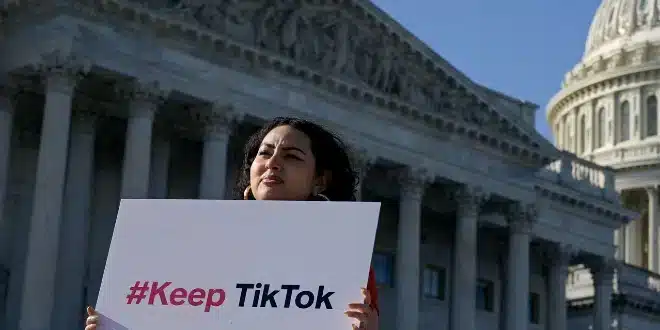TikTok escalated its confrontation with the Biden administration on Thursday regarding a law that could potentially ban the app in the United States. In a court filing, TikTok argued that U.S. users might be isolated from global content if the app is forced to change ownership.
The filing also revealed, for the first time, a draft agreement between TikTok and the U.S. government that the company claims would have mitigated national security concerns. However, this agreement was allegedly abandoned in favor of legislation that TikTok argues infringes on First Amendment rights.
This filing marks TikTok’s initial move in a crucial case that could affect the app’s future for its 170 million American users and influence how courts interpret the First Amendment in relation to online speech. The Justice Department did not comment.
TikTok maintains that its Chinese parent company, ByteDance, cannot divest from the app for technological, commercial, and legal reasons, particularly not by the January 2025 deadline set by the law signed by President Biden in April.
“Even if divestiture were possible, TikTok in the U.S. would be a mere shadow of its former self, losing the innovative technology that customizes content for users,” the company stated. “It would also become an isolated platform, cutting Americans off from the global TikTok community.”
TikTok argues that the challenged law bans the necessary data-sharing agreements to display international content to U.S. users, effectively isolating them.
This warning is echoed by TikTok content creators in a related legal brief. The creators, including a football coach, a sexual assault survivor advocate, and a U.S. Air Force veteran, claim the law would limit their ability to express themselves and infringe on their First Amendment rights to receive information.
TikTok’s focus on the draft agreement with the Committee on Foreign Investment in the United States (CFIUS) could be key to its case. The draft agreement, according to TikTok, provides a less restrictive solution to the government’s concerns without necessitating a ban or forced sale of the app.
Despite years of negotiations and numerous meetings, the draft agreement was never signed. TikTok claims that after months of silence from U.S. officials, CFIUS demanded divestment in March 2023 without explaining why the draft agreement was inadequate.
For years, U.S. officials have warned that the Chinese government could potentially access TikTok user data through ByteDance. The Trump administration attempted to ban TikTok through executive action, but legal challenges halted those efforts. While signing the April legislation, Trump changed his stance, suggesting that a ban would only benefit TikTok’s competitor, Meta.
Independent cybersecurity experts acknowledge the potential risk based on Chinese laws but note that it remains theoretical. They also point out that China has other ways to access sensitive data, such as purchasing it from the open market.
There has been no public evidence that China has accessed U.S. TikTok user data. However, U.S. officials warn that such information could be used for propaganda or identifying intelligence targets, and Congress members have received classified briefings on the app’s risks.
TikTok denies ever sharing data with the Chinese government and criticizes the congressional briefings as part of a flawed and secretive legislative process.
The filing includes the entire 103-page draft agreement, detailing “Project Texas,” TikTok’s plan to separate U.S. user data from its global operations. The document also allows the U.S. government to halt or shut down TikTok if the company fails to meet certain conditions, like allowing code inspections.
TikTok states it has spent $2 billion on Project Texas so far.
The filing also includes a declaration from Christopher Simkins, a third-party expert and former CFIUS official, who asserts that the draft agreement is robust and, if implemented, would reduce TikTok’s national security risks to a low level.


